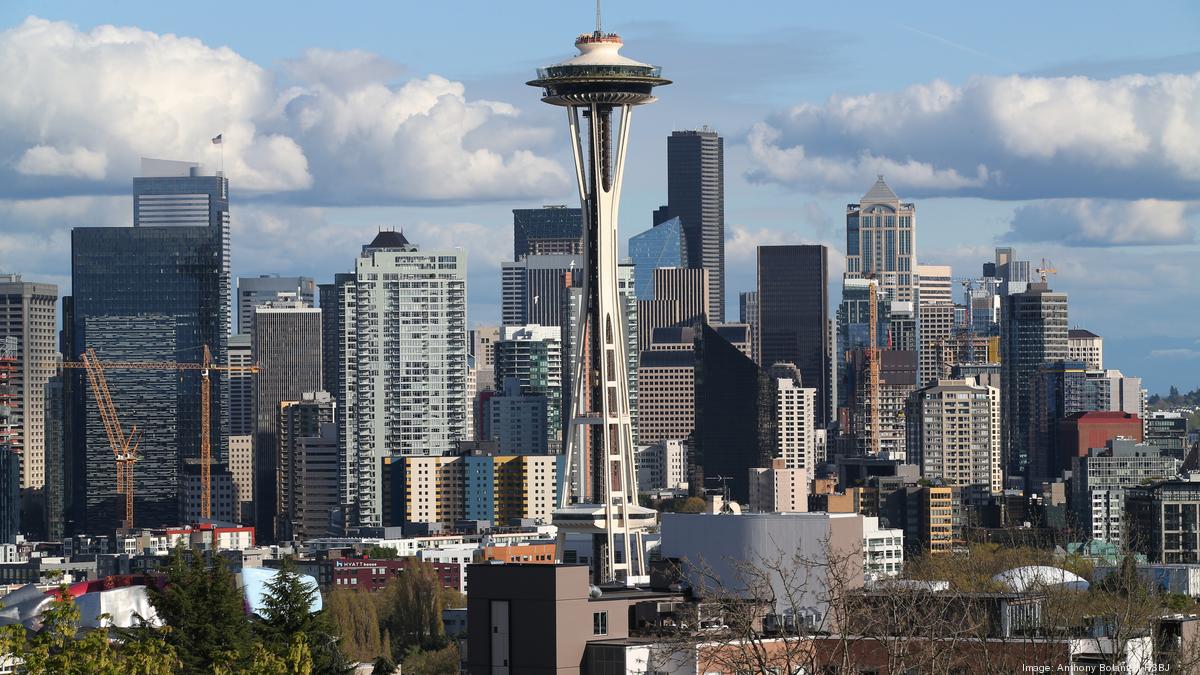With nearly 280,000 ballots counted as of Nov. 13, Katie Wilson has been declared the winner of the election for mayor of Seattle, defeating incumbent Bruce Harrell 50.2%-49.5%. Seattle has roughly 505,000 registered voters.
Although Seattle’s mayoral elections are officially nonpartisan, both candidates were Democrats. This race was one of several 2025 mayoral contests that media outlets and political observers said highlighted splits in the larger Democratic Party, in this case between self-described Democratic socialist Wilson and the more centrist or moderate Harrell.
Wilson, a community activist and executive director of Seattle’s Transit Riders Union, described herself as both a Democratic socialist and a progressive Democrat. According to the Seattle Times, Harrell was the city's longest-serving politician. He was first elected to the Seattle City Council in 2008 and elected mayor in 2021. Media outlets described Harrell as a moderate or centrist Democrat. In interviews, Harrell said he had a record of sponsoring progressive legislation on the city council.
Several local Democratic organizations, including the King County Democrats, as well as the Transit Riders Union, PROTEC17, and the United Food and Commercial Workers Local 3000, endorsed Wilson. Former U.S. Secretary of Transportation Pete Buttigieg (D), Washington Gov. Bob Ferguson (D), Attorney General Nick Brown (D), and U.S. Sen. Maria Cantwell (D) endorsed Harrell.
Two other races that media outlets described as having a progressive-moderate split were the mayoral elections in New York City and Minneapolis, Minnesota. In New York, Zohran Mamdani (D), who also described himself as a Democratic socialist, defeated former Democratic New York Gov. Andrew Cuomo and Curtis Sliwa (R). In Minneapolis, incumbent Jacob Frey, who described himself as a pragmatic progressive, defeated Omar Fateh, who described himself as a Democratic socialist.
To take a deeper dive into the New York and Minneapolis mayoral races, click here and here.
How the balance of power has changed in Seattle
The election result in Seattle means Harrell will be the city’s fourth consecutive mayor to serve a single term. The last incumbent to win re-election was Greg Nickels in 2005.
According to the Seattle Times’ David Kroman, Wilson’s win confirmed a “clean sweep for progressives in this year’s Seattle elections as three incumbents — mayor, City Council president and city attorney — have now been ousted. That swing is in sharp contrast to the 2021 and 2023 Seattle elections, in which voters cast out the city’s most left-leaning politicians.”
In the race for city attorney, Erika Evans defeated incumbent Ann Davison. KNKX Public Radio described Evans as a progressive. Davison was a former Republican candidate for lieutenant governor.
In the city council races:
- Eddie Lin defeated Adonis Ducksworth in the District 2 special election. The Center Square reported that Lin “focused more on affordable housing and homelessness, whereas Duckworth prioritized public safety.
- Incumbent Alexis Mercedes Rinck defeated Rachael Savage in District 8. KNKX Public Radio described Rinck as progressive and reported that Savage describes herself as a Republican.
- Dionne Foster defeated incumbent Sara Nelson in District 9. The Center Square described Foster as progressive and Nelson as a centrist. The council elected Nelson as council president in January 2024.
Kroman wrote, “With the resounding return of the city’s more liberal wing, City Hall will be a much more divided place come Jan. 1. Unlike the near-unanimous moderate slate currently in all elected branches of government, Wilson will face a council that is more ideologically split.” According to Bolts Magazine, progressives will have a block of at least three members on the nine-member council.
Click here to learn more about the other city elections in Seattle.
Election results reporting, mail-in voting, and turnout
For almost a week after Election Day, Harrell was ahead of Wilson. On Monday, Nov. 10, Axios reported that Wilson had surpassed Harrell. According to Axios’ Melissa Santos, “Seattle elections are known to see big leftward swings in later vote counts — and that's largely because younger, more progressive voters tend to cast their ballots on or near Election Day.”
Washington is an all-mail voting state, and all eligible voters receive a ballot in the mail by default. Ballots needed to be postmarked by Nov. 4. Washington accepts valid ballots up to certification. Results will be certified on Nov. 25.
According to the unofficial King County election results, turnout was 55.4% in the general election. In 2021, the year of the last mayoral election, turnout was 54.6%. Turnout was 49.2% in 2017 and 52.5% in 2013.
Mayoral elections nationwide
Eighteen of the 100 most populous U.S. cities held general elections for mayor on Nov. 4. No cities had changes in mayoral partisan control as a result of those elections.
Mayoral races advanced to runoffs in Albuquerque, New Mexico, Jersey City, New Jersey, and Miami, Florida. The incumbents and candidates in Albuquerque and Jersey City are all Democrats. In Miami, Eileen Higgins and Emilio Gonzalez are running to succeed incumbent Francis Suarez (R). Miami’s mayoral elections are also nonpartisan. Higgins is affiliated with the Democratic Party, and Gonzalez is affiliated with the Republican Party.
Click here to see our full coverage of the Seattle mayoral election and here to see more mayoral election results.


